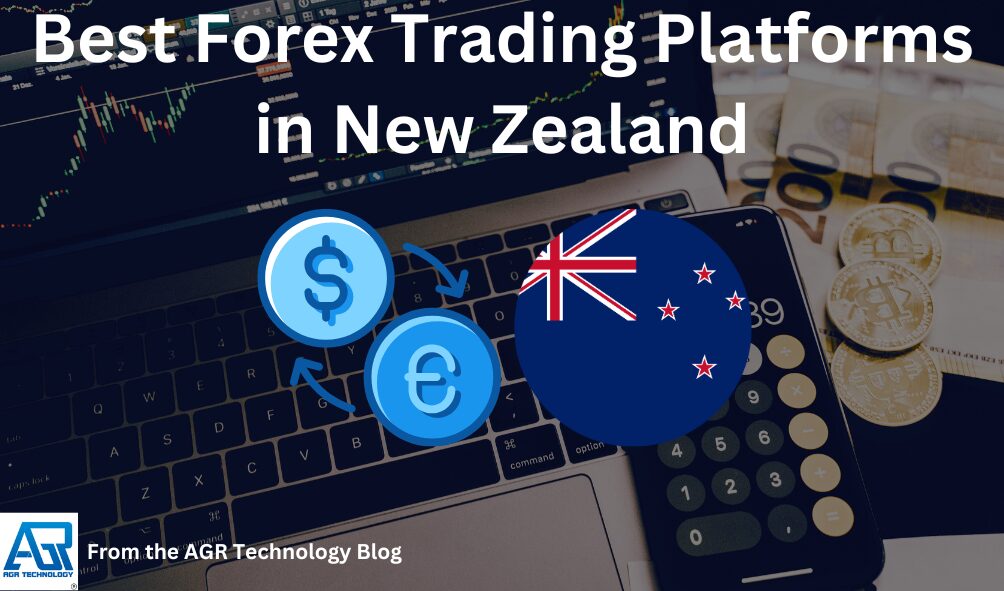Disclaimer: General information only. All kinds of investment (particularly trading CFDs, commodities, and FX) involve significant risk, including the possibility of losing more than the amount invested, as well as market volatility and liquidity hazards. Past performance does not guarantee future results. Most investors will find such operations unsuitable.
Best Forex Trading Platforms in NZ: Top Picks for Kiwi Traders in February 2026
New Zealand’s forex trading landscape offers exciting opportunities for traders seeking robust platforms and competitive markets. With the Financial Markets Authority (FMA) providing strong regulatory oversight traders can confidently explore multiple trading options designed to meet diverse investment strategies.
Selecting the right forex trading platform is crucial for success in the dynamic financial markets. Top platforms like MetaTrader 4 (MT4) and MetaTrader 5 (MT5) dominate the New Zealand trading scene offering user-friendly interfaces advanced charting tools and comprehensive market access. Traders can choose from platforms that support various markets including forex stocks and cryptocurrencies ensuring flexibility and comprehensive trading experiences.
Navigating the forex trading ecosystem requires careful consideration of platform features spreads execution speeds and regulatory compliance. By understanding the nuanced offerings of different trading platforms New Zealand traders can make informed decisions that align with their financial goals and risk tolerance.
Best Forex Trading Platforms in New Zealand Overview
New Zealand’s forex trading market offers diverse platforms catering to different trader profiles. The landscape features multiple trading solutions with unique characteristics targeting both novice and experienced traders.
1) Blackbull
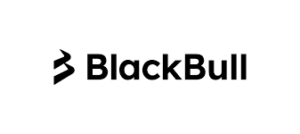
Pros
- Regulated by the Financial Markets Authority (FMA) in New Zealand, offering a trustworthy regulatory framework
- Wide selection of trading platforms, including MetaTrader 4, MetaTrader 5, cTrader, and TradingView
- Access to over 26,000 tradable instruments, including forex, stocks, commodities, and crypto CFDs
- It supports advanced trading features such as social trading and automated trading tools
- High leverage options are suitable to more experienced traders
- Fast execution speeds are ideal for high-frequency trading
- There are several third-party trading programs available, like Autochartist and Acuity
- Provides a demo account for risk-free practice across many platforms
Cons
- Limited regulatory coverage outside of New Zealand, with lighter protection from its Seychelles entity
- High minimum deposit requirements for advanced account types, which may not suit beginner traders
- The educational resources are limited, especially compared to some other brokers offering more comprehensive content
- Spreads and fees can be higher for standard accounts, making it less cost-effective for smaller traders
- Cryptocurrency trading is only available through CFDs, not through direct ownership of assets
2) Plus500
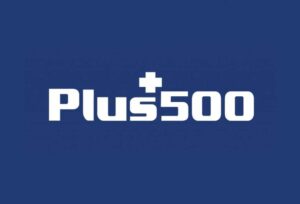
Plus500 provides a streamlined trading solution.
Commission-free CFD trading
User-friendly interface
Risk-management tools
Complete market coverage
Mobile app with real-time trading capabilities.
Plus500, founded in Israel and headquartered in London, offers online trading services for contracts for difference (CFDs), share dealing, futures trading, and futures options. The corporation has subsidiaries in the UK, Cyprus, Australia, Israel, the Seychelles, Singapore, Bulgaria, Estonia, the United States, Dubai, Indonesia, the Bahamas, and Japan. It is listed on the London Stock Exchange and is part of the FTSE 250 Index.
Plus500 is a respectable and well-regulated forex trading platform that provides a wide selection of assets at reasonable trading fees. While it offers an easy-to-use interface and outstanding customer service, its limited educational resources and reliance on a single platform may not appeal to many traders.
Pros:
- Strong regulatory oversight from many authorities
- A diverse range of tradable assets, including Forex and share CFDs
- Competitive spreads and modest minimum deposit
- 24-hour customer service with a reputation for quality
- Sleek, user-friendly mobile and web platforms
Cons:
- Lacks instructional materials and market analysis
- Limited platform support (just its own internal platform)
- A single account type with no multi-account or business options
- There are no advanced trading tools like the ones given by competitors
3) CMC Markets
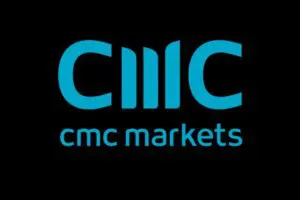
CMC Markets is a well-known online trading platform in New Zealand and around the world, offering a wide choice of financial products and cutting-edge trading technologies. CMC Markets, founded in 1989, has become a global leader, offering NZ traders access to over 10,000 financial instruments across many asset classes. The company’s commitment to innovation and client satisfaction has earned it an excellent reputation in the market.
Key Features:
-
CMC Markets offers various charting tools
-
1-Click Trading
-
CMC Markets provides various account specifications
-
Powerful trading tools
-
Wide range of tradable instruments
Investment Options:
-
Forex
-
Indices
-
Commodities
-
Shares
-
Treasuries
-
Cryptocurrencies
-
ETFs
Trading Platforms:
-
Next Generation
-
MetaTrader 4 (MT4)
-
Mobile Trading Apps
Pros
-
Competitive forex fees
-
User-friendly web and mobile platforms
-
Comprehensive research and education resources
Cons
-
Expensive stock CFD trading
-
Only offers CFD trading
-
Limited customer support hours (24/5)
Platform Selection Criteria
Traders should evaluate forex platforms based on:
- Regulatory compliance with Financial Markets Authority (FMA)
- Trading instrument diversity
- Platform usability
- Transaction cost structures
- Execution speed
- Educational resources
Platform Technical Capabilities
Modern New Zealand forex platforms typically offer:
- MetaTrader 4 and 5 integration
- Real-time market analysis tools
- Risk management features
- Mobile and desktop compatibility
- Automated trading options
Trading Cost Considerations
Forex platforms in New Zealand demonstrate varied cost structures:
- Spread ranges from 0.8 to 2 pips
- Commission-free options available
- Transparent fee disclosures
- Variable spreads depending on market conditions
Risk Management Insights
Prudent traders prioritize platforms providing:
- Negative balance protection
- Comprehensive risk warning mechanisms
- Configurable stop-loss settings
- Margin trading controls
The forex trading platform landscape in New Zealand continues evolving with technological advancements and regulatory developments.
Understanding Forex Trading Regulations in New Zealand

Forex trading in New Zealand operates under a robust regulatory framework designed to protect investors and ensure market transparency. The Financial Markets Authority (FMA) plays a crucial role in maintaining the integrity of forex trading activities across the country.
Financial Markets Authority (FMA) Guidelines
The FMA establishes comprehensive guidelines for forex trading platforms operating in New Zealand:
- Regulatory Oversight: Monitors and regulates forex trading activities
- Investor Protection: Implements strict standards to safeguard trader interests
- Transparency Requirements: Mandates clear disclosure of trading conditions
- Compliance Standards:
- Ensures brokers meet financial stability criteria
- Conducts regular audits of trading platforms
- Requires detailed reporting of operational practices
Broker Licensing and Compliance
Key compliance requirements for forex brokers in New Zealand include:
| Compliance Aspect | Specific Requirements |
|---|---|
| Licensing | Derivatives license from FMA |
| Capital Reserves | Minimum financial sustainability thresholds |
| Reporting | Quarterly financial and operational reports |
| Client Fund Protection | Segregated client account management |
Essential licensing criteria involve:
- Demonstrating financial stability
- Providing comprehensive risk management protocols
- Maintaining transparent trading conditions
- Implementing robust security measures for client funds
- Offering clear dispute resolution mechanisms
Traders should evaluate platforms based on:
- FMA regulatory compliance
- Platform security features
- Transparent fee structures
- Quality of customer support
- Range of available trading instruments
- Verify FMA registration
- Review platform’s compliance history
- Assess financial stability indicators
- Check client fund protection mechanisms
- Understand specific trading restrictions
Key Factors in Choosing a Forex Trading Platform
Selecting an appropriate forex trading platform demands careful consideration of multiple critical elements. New Zealand traders must evaluate platforms based on comprehensive features, cost structures, and alignment with individual trading strategies.
Trading Platform Features and Functionality
Key platform features determine trading effectiveness and user experience:
Core Functionality Checklist
- Charting Tools: Advanced technical analysis capabilities
- Order Types: Multiple execution options
- Interface: Intuitive and responsive design
- Mobile Compatibility: Seamless smartphone/tablet integration
- Real-time Market Data: Accurate price feeds and market insights
Performance Considerations
Platforms like MetaTrader 4 and cTrader offer distinct advantages:
- MT4: Robust algorithmic trading support
- cTrader: Superior order execution transparency
- Proprietary platforms: Customized user experiences
Comparing Trading Costs and Spreads
Cost analysis involves multiple components:
| Cost Element | Typical Range | Impact |
|---|---|---|
| Spreads | 0.8 – 2.0 pips | Direct trading expense |
| Commission | $5 – $8 per lot | Additional transaction cost |
| Overnight Swap | Varies by instrument | Long-term holding expenses |
Strategic Cost Evaluation
- Compare total trading costs across platforms
- Consider volume-based pricing structures
- Assess commission-free versus commission-based models
Leverage and Risk Management
Risk mitigation remains paramount:
Risk Control Features
- Negative balance protection
- Configurable stop-loss settings
- Margin requirement transparency
- Risk exposure calculators
Leverage Considerations
- FMA-regulated platforms typically offer 1:30 to 1:500 leverage
- Higher leverage increases potential gains/losses
- Recommend conservative leverage for inexperienced traders
Supported Trading Instruments
Comprehensive instrument offerings enhance trading flexibility:
Typical Instrument Categories
- Major currency pairs
- Minor currency crosses
- Commodities
- Indices
- Cryptocurrencies
- Equities CFDs
- Market coverage
- Liquidity
- Trading hours
- Margin requirements
Traders should prioritize platforms offering diverse, regulated instrument selections that match their specific investment strategies and risk tolerance.
Popular Trading Platform Technologies
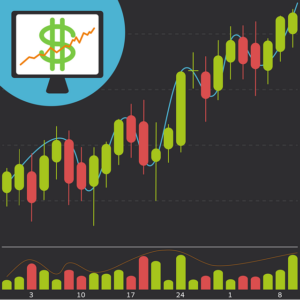
Trading platforms serve as critical infrastructure for forex traders in New Zealand, offering diverse technological solutions to meet varied investment needs. These platforms integrate advanced features that enable efficient market analysis and trade execution across multiple instruments.
MetaTrader Platforms
MetaTrader platforms dominate the forex trading landscape with robust technological capabilities:
MetaTrader 4 (MT4)
- Most widely adopted platform globally
- Over 25,000 custom plugins and indicators
- Advanced algorithmic trading support
- Supports Expert Advisors (EAs) for automated strategies
- Compatibility with MAMM/PAMM account management
MetaTrader 5 (MT5)
- Enhanced technical analysis tools
- Expanded trading instrument support
- Additional timeframes and order types
- Improved price forecasting capabilities
- Designed for multi-asset trading including CFDs
Web-Based Trading Platforms
Web-based platforms offer flexible trading solutions without software installation:
- Accessible from any internet-connected device
- Instant account access
- Reduced system resource requirements
- Typically feature real-time market data
- Simplified user interfaces
Example Platforms:
- TradingView
- BlackBull WebTrader
- eToro Web Platform
Mobile Trading Solutions
Mobile platforms enable on-the-go trading with comprehensive features:
Key Mobile Trading Characteristics
- Real-time market monitoring
- One-tap trade execution
- Advanced charting capabilities
- Secure account management
- Push notifications for market movements
- MetaTrader Mobile App
- cTrader Mobile
- Plus500 Mobile App
- BlackBull Markets Mobile
| Platform | Device Compatibility | Key Features |
|---|---|---|
| MT4 Mobile | iOS/Android | Expert Advisor support |
| cTrader | iOS/Android | Advanced charting |
| Plus500 | iOS/Android | Risk management tools |
Traders should evaluate mobile platforms based on personal trading requirements, device compatibility, and specific platform functionalities.
Evaluating Forex Broker Performance
Forex broker performance assessment requires a comprehensive approach that examines multiple critical dimensions. Traders in New Zealand must analyze platforms through a multifaceted lens of technical capabilities, regulatory compliance, and user experience.
Account Types and Minimum Deposits
Forex trading platforms in New Zealand offer diverse account structures tailored to different trader profiles:
Retail Accounts
- Minimum deposits ranging from NZ$200 to NZ$500 typically
- Standard example leverage options between 1:30 to 1:500
- Basic technical analysis tools included
Professional Accounts
- Minimum deposits typically NZ$10,000+
- Advanced risk management features
- Lower spread configurations
- Dedicated account management support
| Account Type | Minimum Deposit Example Ranges | Leverage | Features |
|---|---|---|---|
| Standard | NZ$200-$500 | 1:30-1:200 | Basic tools |
| Professional | NZ$10,000+ | 1:500 | Advanced tools |
Customer Support and Educational Resources
Comprehensive support ecosystems distinguish top-tier forex platforms:
Support Channels
- 24/5 multilingual customer service
- Live chat functionality
- Email and telephone support
- Local New Zealand contact numbers
Educational Content
- Webinar series
- Market analysis reports
- Trading strategy guides
- Risk management tutorials
- Video tutorials for platform navigation
Security and Fund Protection
Critical security parameters for New Zealand forex traders:
Regulatory Compliance
- Financial Markets Authority (FMA) registered
- Segregated client fund accounts
- Negative balance protection
- Two-factor authentication
- Encryption protocols (256-bit SSL)
- Transparent fee structures
- Regular security audits
- Comprehensive risk disclosure
- Investor compensation schemes
Key compliance indicators ensure trader protection and platform reliability across New Zealand’s forex ecosystem.
Advanced Trading Platform Considerations
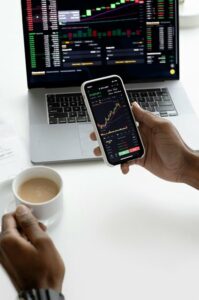
Trading platforms in New Zealand offer sophisticated tools that enable precise market analysis and strategic execution. Traders can leverage advanced technological features to enhance their forex trading performance across multiple platforms.
Technical Analysis Tools
Technical analysis tools provide critical insights for forex traders in New Zealand. Key features include:
- Trend Identification Tools
- Moving averages
- Relative strength index (RSI)
- Bollinger bands
- MACD indicators
- Volatility Measurement
- Average true range (ATR)
- Standard deviation indicators
- Fibonacci retracement levels
- Performance Metrics
- Real-time market sentiment analysis
- Volume-based momentum indicators
- Historical price pattern recognition
Automated Trading Capabilities
Automated trading platforms empower New Zealand traders with advanced algorithmic strategies:
- Development Environments
- MetaTrader 4/5 integrated coding platforms
- cTrader automated trading systems
- Custom Expert Advisor (EA) development
- Algorithmic Strategy Features
- Backtesting capabilities
- Risk management parameters
- Emotion-free trade execution
- Customizable trading logic
Charting and Indicators
Comprehensive charting tools enable sophisticated market visualization:
- Charting Types
- Candlestick representations
- Line and bar charts
- Tick charts
- Point and figure charts
- 30+ technical analysis indicators
- Custom drawing tools
- Price action pattern recognition
- Multi-timeframe analysis
Each platform offers unique features catering to different trader preferences and analytical approaches. Traders should evaluate platform capabilities against their specific trading strategies and technical analysis requirements.
Forex Trading Strategies for New Zealand Traders
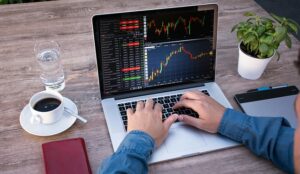
New Zealand forex traders navigate a unique market landscape with specific strategic considerations. The following strategies offer targeted approaches for maximizing trading potential within the Asia-Pacific region’s dynamic currency markets.
Risk Management Techniques
Effective risk management protects traders from substantial financial losses in volatile forex markets. Key techniques include:
- Position Sizing: Consider limiting individual trade exposure to 1-2% of total account balance
- Stop-Loss Orders: Automatically close positions at predetermined loss thresholds
- Diversification: Spread risk across multiple currency pairs
- Correlation Analysis: Understand relationships between different currency pairs
Hedging Strategies:
- Use inversely correlated pairs
- Implement options contracts
- Utilize derivative instruments to offset potential losses
Choosing the Right Trading Approach
New Zealand traders can select from multiple trading strategies based on time commitment and risk tolerance:
- Scalping
- Rapid trade execution
- Multiple short-duration positions
- Requires constant market monitoring
- Suitable for high-attention traders
- Day Trading
- Positions closed within single trading session
- Minimal overnight market exposure
- Requires strong technical analysis skills
- Best for full-time traders
- Swing Trading
- Positions held 2-14 days
- Captures medium-term market movements
- Less time-intensive monitoring
- Ideal for part-time traders
- Long-Term Position Trading
- Positions held weeks to months
- Fundamental economic analysis focus
- Minimal daily intervention required
- Suited for patient investors
| Strategy | Time Commitment | Risk Level | Skill Required |
|---|---|---|---|
| Scalping | High | High | Advanced |
| Day Trading | High | Medium-High | Intermediate |
| Swing Trading | Medium | Medium | Intermediate |
| Position Trading | Low | Low | Basic |
Critical considerations for New Zealand traders include:
- Local market hours
- Asia-Pacific trading sessions
- Regional economic indicators
- Currency pair volatility
- Personal risk tolerance
- Available trading time
Traders must continuously adapt strategies based on market conditions and personal performance metrics.
Key Takeaways
- Robust Regulatory Environment: New Zealand’s forex trading is overseen by the Financial Markets Authority (FMA), ensuring strong investor protection and platform compliance for traders seeking secure trading experiences
- Diverse Platform Options: Traders can choose from top platforms like MetaTrader 4/5, CMC Markets, and BlackBull Markets, offering comprehensive features including advanced charting, multiple asset classes, and competitive trading instruments
- Cost-Effective Trading: New Zealand forex platforms provide competitive spreads ranging from 0.8 to 2 pips, with commission-free options and transparent fee structures to support traders’ financial strategies
- Advanced Risk Management: Leading platforms offer critical risk mitigation tools such as negative balance protection, configurable stop-loss settings, and leverage controls to help traders manage potential market volatility
- Technological Innovation: Modern forex platforms in New Zealand integrate cutting-edge technologies like real-time market analysis, mobile compatibility, and automated trading options to enhance overall trading performance
- Comprehensive Market Access: Traders can access a wide range of trading instruments, including major currency pairs, cryptocurrencies, stocks, and CFDs, providing flexibility and diversification opportunities across multiple markets
Conclusion
Choosing the right forex trading platform in New Zealand requires careful consideration of multiple factors. Traders must prioritize regulatory compliance regulatory technology and risk management features to ensure a secure and efficient trading experience.
The best platforms offer a comprehensive suite of tools that empower traders to make informed decisions. From advanced charting capabilities to competitive pricing structures these platforms provide the essential infrastructure for successful forex trading.
Ultimately success in forex trading depends on selecting a platform that aligns with individual trading goals and risk tolerance. By leveraging platforms regulated by the Financial Markets Authority traders can navigate the dynamic forex landscape with confidence and strategic precision.
Note: This is not financial advice and is just designed to provide general information. While we run our own checks and assess each company included on our website, we may not have covered all options. If you decide to apply for a product, you will interact directly with the vendor, not AGR Technology. AGR Technology suggests that you read the appropriate PDS or offer documents before accepting any financial product offer to assess whether the products are suitable for you. Target Market Determinations are available on the provider’s website.
AGR Technology may receive a commission on sales generated by partner links on this page, but this has no influence on our opinions or evaluations and is completely free of charge to you. While we make every attempt to keep our content up-to-date this should not be taken as financial advice, be sure to seek professional advice if required.
Frequently Asked Questions
What is the best forex trading platform in New Zealand?
The best forex trading platforms in New Zealand include BlackBull Markets, CMC Markets and Plus500 to name a few. These platforms offer robust features like advanced charting tools, multiple trading instruments, and regulatory compliance with the Financial Markets Authority (FMA). Key considerations include low spreads, user-friendly interfaces, mobile compatibility, and comprehensive educational resources for traders of all experience levels.
Is forex trading legal in New Zealand?
Forex trading is completely legal in New Zealand and strictly regulated by the Financial Markets Authority (FMA). The regulatory body ensures market integrity, investor protection, and transparent trading practices. Traders must choose platforms that comply with FMA guidelines, maintain proper licensing, and provide segregated client accounts. This robust regulatory framework offers traders a secure and professionally managed forex trading environment.
Do forex traders pay taxes in New Zealand?
In New Zealand, forex trading profits are considered taxable income. Traders must report their earnings from currency trading as part of their annual tax return. The tax treatment depends on whether trading is considered a business activity or personal investment. Profits are typically taxed at the individual’s marginal tax rate, and traders are advised to maintain accurate records of all trading transactions and consult with a tax professional.
Which forex trading platform is best for beginners?
MetaTrader 4 (MT4) and MetaTrader 5 (MT5) are excellent platforms for beginners in New Zealand. They offer user-friendly interfaces, comprehensive educational resources, and advanced charting tools. Other beginner-friendly platforms include Plus500 and CMC Markets, which provide intuitive design, risk management features, and demo accounts for practice. Beginners should prioritize platforms with low minimum deposits, educational materials, and responsive customer support.
What are the most traded currency pairs for New Zealand traders?
The most popular currency pairs for New Zealand traders include EUR/USD, GBP/USD, USD/JPY, and NZD/USD. These pairs offer high liquidity, lower spreads, and significant market volatility. EUR/USD is particularly attractive due to its low transaction costs and extensive market information. Traders should consider their risk tolerance, market knowledge, and trading strategy when selecting currency pairs.
How can beginners start forex trading in New Zealand?
To start forex trading in New Zealand, beginners should follow these steps: 1) Research and choose a regulated platform like BlackBull Markets or CMC Markets, 2) Complete account registration and verification, 3) Start with a demo account to practice trading strategies, 4) Learn fundamental and technical analysis, 5) Begin with small investments, 6) Continuously educate themselves about market dynamics, and 7) Implement robust risk management techniques.
What risk management strategies should forex traders use?
Effective risk management strategies include setting stop-loss orders, using proper position sizing, diversifying trading instruments, and consider limiting risk to 1-2% per trade. Traders should utilize platform features like negative balance protection, configurable stop-loss settings, and real-time market analysis tools. Continuous learning, maintaining emotional discipline, and adapting strategies based on market conditions are crucial for long-term trading success.
Related content on our blog:
Top day trading platforms for Australian traders
Best CFD Brokers & Trading Applications for Australia
Top rated CFD Brokers for the UAE
Source(s) cited:
“Black Bull Group Limited” Financial Markets Authority, 31 Aug. 2022, www.fma.govt.nz/business/licensed-providers/black-bull-group-limited/. Accessed 13 Jan. 2025.
“Plus500AU Pty Ltd” Financial Markets Authority, 30 Sept. 2016, www.fma.govt.nz/business/licensed-providers/plus500au-pty-ltd/. Accessed 13 Jan. 2025.
Plus500.com. Accessed January 13, 2025. https://www.plus500.com/en-au/tradingacademy/faq/regulators/throughwhichsubsdoyouoperate.
“CMC Markets Regulators| CMC Markets”, [Online]. Available: https://www.cmcmarkets.com/en/regulations. [Accessed: 13-Jan.-2025].
Legal and Important information [Online]. Available at: https://www.cmcmarkets.com/en-nz/important-information (Accessed: 13 January 2025).
(2014, December 12). CMC Markets NZ Limited. Financial Markets Authority. https://www.fma.govt.nz/business/licensed-providers/cmc-markets-nz-limited/

Alessio Rigoli is the founder of AGR Technology and got his start working in the IT space originally in Education and then in the private sector helping businesses in various industries. Alessio maintains the blog and is interested in a number of different topics emerging and current such as Digital marketing, Software development, Cryptocurrency/Blockchain, Cyber security, Linux and more.
Alessio Rigoli, AGR Technology
![logo-new-23[1] logo-new-23[1]](https://agrtech.com.au/wp-content/uploads/elementor/thumbs/logo-new-231-qad2sqbr9f0wlvza81xod18hkirbk9apc0elfhpco4.png)
